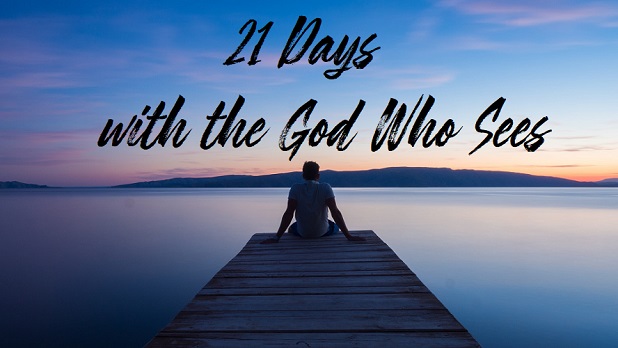Day 13: A Steady Diet of Seaweed
Read: Jonah 1-4
I hope you didn’t skip the reading thinking four chapters is too daunting. The entire book is only 47 verses. It’s just broken up into short chapters.
Jonah’s narrative begins with him hearing the word of the Lord, “Go to the great city of Nineveh and preach against it, because its wickedness has come up before me.” We don’t even have a record of Jonah replying to the Lord. In the next verse, he ran away. I can hardly blame him. Nineveh was located in Assyria. They were enemies of Israel and their cruelty and brutality were widely known and is historically documented. To give you an idea, they were known for dismembering, skinning, decapitating, impaling, and burning their victims. They had tall poles featuring the heads of warriors they had conquered and they proudly displayed their impaled bodies. Evil hardly begins to describe this city and her people. Certainly not a place a person would want to vacation, let alone preach.
Do you see why Jonah ran as fast as he could in the other direction? I imagine most of us would. The problem is, we can’t outrun God any more than Jonah could. He always knows where we are (see Psalm 139:7-8). Not only did God see Jonah when he was in his homeland, he also saw him:
- On the ship…in the sea…in the great fish…on the dry land on his way to Nineveh…in Nineveh…in his disobedience and his (reluctant) obedience…in his shelter outside the city…under the vine.
No matter where we find Jonah, God was right there. The thing about Jonah is that he isn’t unlike us. He had fear. He didn’t think the Assyrians were worthy of mercy. He wanted to see them destroyed. He pouted and complained to God. He even told God he knew him to be gracious and compassionate, slow to anger, abounding in love and who would relent. Sounds like a strange thing to be angry about because the truth is, on some level, Jonah loved all those things about God when applied to himself.
In response, God confronted Jonah about his selfishness and complete lack of compassion.
The great sadness in this story is how it ends. We don’t read of Jonah changing his mind, standing up, brushing off the dust and responding in praise and worship for the great miracle God did in Nineveh. And it was great. This evil king disrobed, covered himself in sackcloth and ashes and sat down in the dust. He proclaimed everyone else do it, too. In him, we see a picture of repentance. In Jonah, we see a picture of self-righteousness.
As you ponder the events of this story, do you find yourself more like the Ninevites or more like Jonah? Is your response to being confronted with your sin to fall down in repentance and humility? Or is it to grumble and complain to God and declare he is unfair?
Nobody is beyond redemption. Not only do we see those in Nineveh saved by the grace of God, I hope you noticed in Jonah 1:16 that the men on the ship also encountered God in a pretty mighty way. God’s love and compassion extend to everyone, even those in utter defiance, and those in self-righteousness.
Prayer: Pray along with the psalmist in Psalm 139:23-24, “Search me, O God, and know my heart! Try me and know my thoughts! And see if there be any grievous way in me, and lead me in the way everlasting!”

